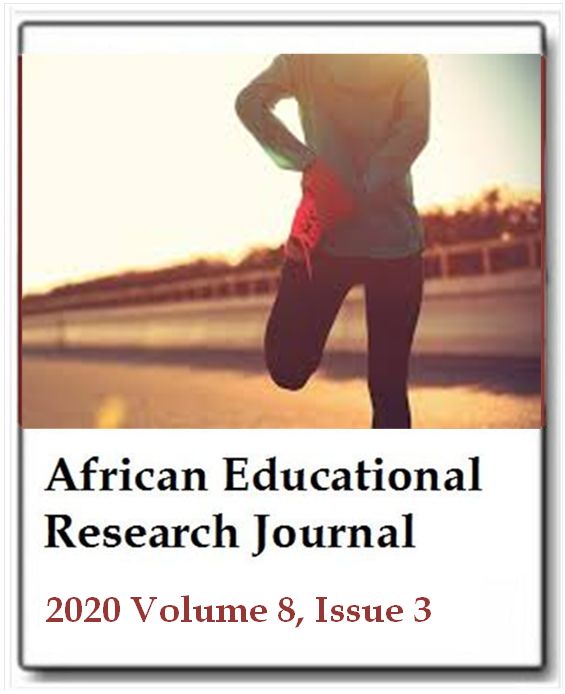Influence of board of managements’ infrastructural development practices on students’ academic performance in public secondary schools in Nyamira County Kenya
Kennedy Ondara Okemwa, Marcella Momanyi and Anyona NtaboAfrican Educational Research Journal
Published: September 4 2020
Volume 8, Issue 3
Pages 575-585
DOI: https://doi.org/10.30918/AERJ.83.20.143
Abstract
The availability of infrastructure and facilities that are up to the standards and well maintained will influence both teaching and learning of students. A progressive improvement in the standard of infrastructure of a secondary school will lead to a remarkable development in the education system as a whole. The purpose of this study was to examine the influence of Board of Management’s (BOM) infrastructural development practices on students’ academic performance in public secondary schools. A convergent parallel mixed-method research design was used. The study targeted students, Teachers Heads of Departments, BOM members and Quality Assurance and Standards Officers, making a total study population of 19,609. Both probability and non-probability sampling methods were used to select a sample size of 396 participants. Data was collected using questionnaires, interview guides and observation tool. Inferential statistics involved the use of multiple regression analysis and analysis of variance along with descriptive statistics. The study concluded that inadequate provision of infrastructural facilities in schools by the BOM affects the teaching and learning activities which negatively affect the students' academic performance. In the regression analysis, an improvement in BOM’s infrastructural management practice by one unit would result in the improvement of the students' academic performance by 0.081 units holding other factors constant. Thus, the school BoM should ensure that there is adequate infrastructure in public schools to improve academic performance among the students. The board of management should ensure a conducive teaching and learning environment in public secondary schools by providing adequate infrastructural facilities such as classrooms, laboratories, library, teaching and learning materials/resources, workshops for technical subjects, sanitary facilities and utilities.
Keywords: Board of Management practices, infrastructural development practices in schools, academic students’ performance.
Full Text PDFThis article is published under the terms of the Creative Commons Attribution License 4.0

